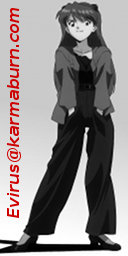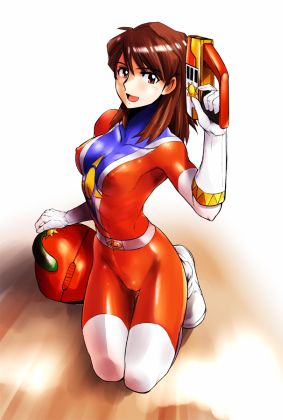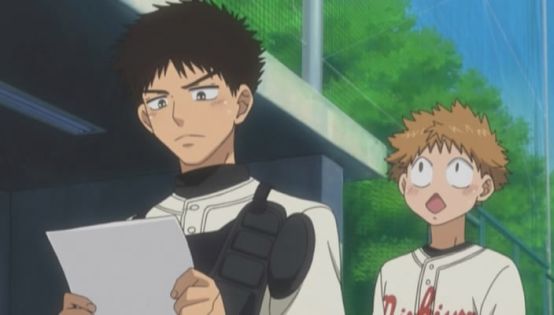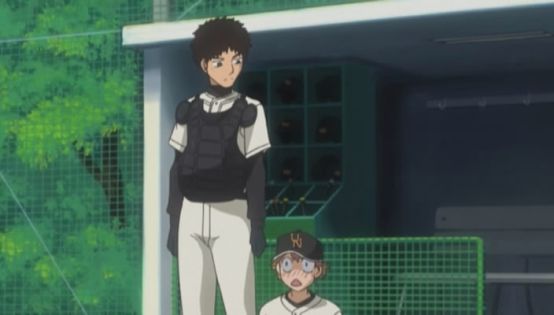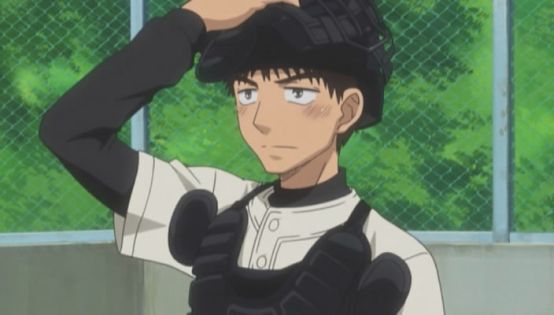Dated 3 January 2010: Autumn 2009 season wrapup
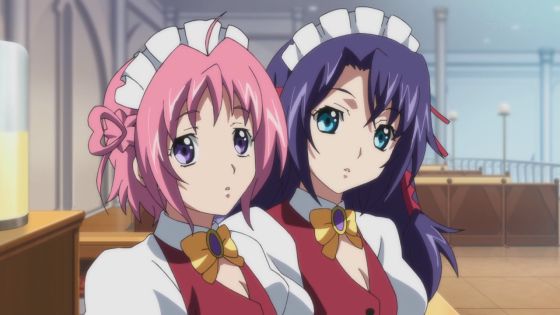
I dropped Kiddy Girl-and at episode nine for trying to add a plot.
By convention, anime bloggers seem obligated to offer end-of-season summaries breaking down the finer points of the shows they watched and presumably covered (hah!) over each three-month block (or cour). So be it.
The short version is as follows: Kimi ni Todoke (12) > Cross Game (38) > Fullmetal Alchemist: Brotherhood (38) > Miracle Train [13] > Seitokai no Ichizon [12] > The Book of Bantorra (14) > Queen's Blade II [12] > Sunred II (37) > Fresh Pretty Cure (45), where the number in parentheses represents the last episode watched, and numbers in brackets indicate completion of a series and its total number of episodes. No OVAs or movies are included in these rankings.
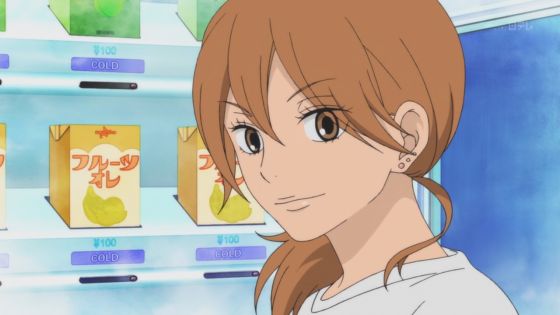
I'm calling it: Yano is pure evil.
Kimi ni Todoke veers into melodramatic territory frequently and its reception has grown increasingly polarized. Depending on your stomach for such shows, it's either excellent or unwatchable—at least that's the way it seems when comparing various reactions to the series. I find it excellent. Also, those of you who know Mamiko Noto from interviews, behind-the-scenes specials, and commentary tracks will reasonably conclude both her Shimako-variety and DARK MAMIKO personas (more on that later) are purely products of acting. Evil Miyuki Sawashiro, on the other hand, I'm convinced is the real deal. I'll never look at Puchiko the same way again. Anyway, I'm glad Kimi ni Todoke is getting another cour. It has sympathetic leads and villains I don't hate.
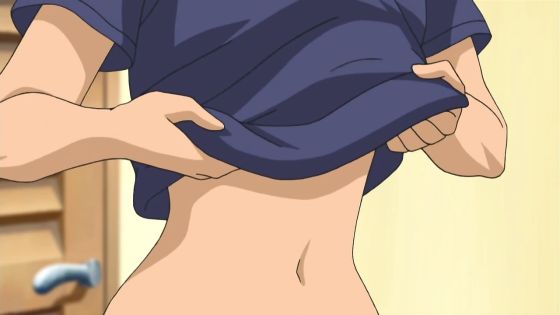
This is as close as you'll get to seeing Aoba tearing her clothes off.
Cross Game and its Mitsuru Adachi storytelling remains as compelling as ever, although it's probably a comment on the state of today's anime trends that I find a simple heterosexual romance to be a refreshing departure from the usual feuds among turbo lesbians and loathsome harem comedy leads. However, if you're familiar with Adachi's staples, you may find Cross Game a little too familiar. E.g., there will be no great happiness for the characters (and Aoba and Ko aren't going to start tearing each other's clothes off anytime soon), but at least one moment of tragedy or despair is assured (as is appropriate for baseball). Despite the sports theme, Cross Game is best as a relationship drama and light comedy, and succeeds because it plays to these strengths.
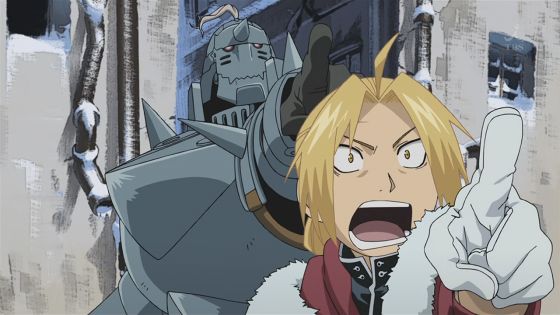
"Whoa, look at the size of that cat!"
Fullmetal Alchemist: Brotherhood is good shounen/mainstream fare without the odious shounen jive conventions one typically finds attached to shows aimed at such audiences. This anime variant, more faithful to the original manga than the first Fullmetal Alchemist, retains the interesting characters and periodic plot twists that made the first series so popular. Really, at this point, Brotherhood is at least as good as the first anime—if not better—and deserves more attention from the crowd that dismissed it early on as a simple rehash of something they had already seen.
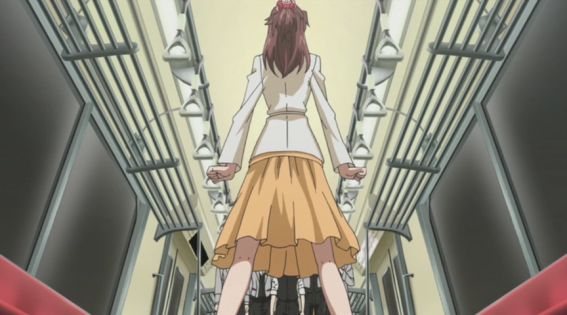
There is no escape from the Miracle Train, sweetie.
Miracle Train turned out to be a lot less gay than I was expecting. In fact, homosexual overtones were almost entirely absent, despite the show's outward appearance. Instead, what Miracle Train really seems like is some manner of train gang rape porn. Basically every episode some girl gets on a train and is immediately surrounded by men who won't let her off until they've "solved her problems." Usually the girl offers token resistance, but eventually relents and actually enjoys "having her problems solved" in the end. It's a ridiculous concept, punctuated by copious amounts of train and train station trivia, a token loli, and a talking dog that sounds suspiciously like Athrun Zala wondering what in Hell he's supposed to do this time about the man in the mask. Still, I'm glad I watched the entire series, and the later episodes contained the right mix of seriousness and sentimentalism.
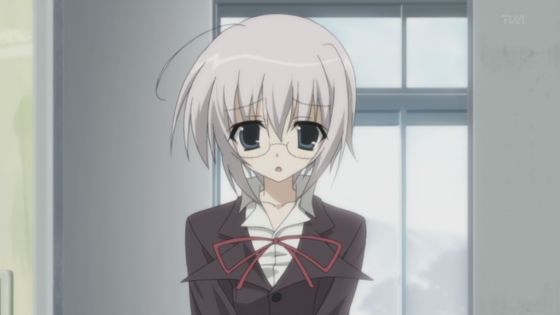
This is really a girl, isn't it? He has a ribbon.
Seitokai no Ichizon was all right even if it relied too much on reference humor. It had good comic timing, amusing characters, and never aspired to be much more than what it was.
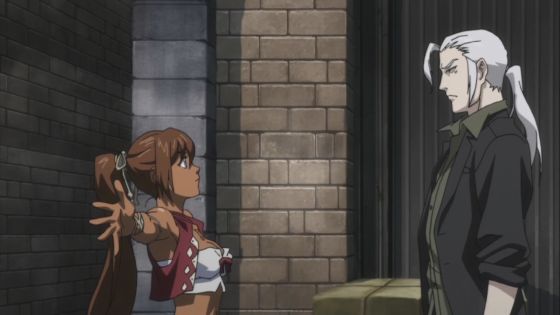
"I want you to hit me as hard as you can."
The Book of Bantorra is worth watching just because it's different. I liked the way the first arc played out, although Ayako Kawasumi's departure from the show is sorely missed. Well, they did bring her back to narrate the clip show in episode 14. Besides that, Noloty deserves to be on the short list of dark-skinned anime characters, Mirepoc has ridiculous-yet-awesome hair, and the strongest character on the show is the woman who is really good at hucking rocks. How can you not like that shit?
Sunred II is basically just more of the same. I like parody, but the jokes are becoming a little one-note. At this point I'd rather they just make the entire thing a bachelor-chow cooking show with Kayoko and Vamp punctuated by occasional household tips.
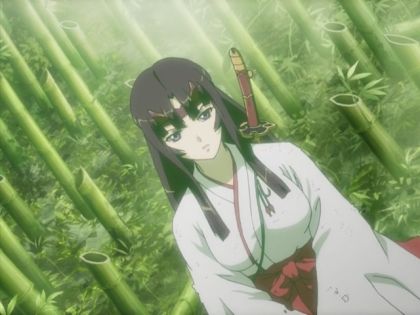
The horns mean Tomoe is serious. Dead serious.
I realize this is fairly qualified praise, but Queen's Blade II is far and away superior to the first season. For one thing, there's a lot less peeing. But the real gem is discovering why Mamiko Noto has been playing Tomoe so seriously all this time. The return of DARK MAMIKO is a welcome surprise albeit one only familiar to those who realized it was her in Dai Mahou Touge and perhaps those who enjoyed the final scenes of her character in the Kara no Kyoukai movies. (Note: DARK MAMIKO is not to be confused with her Ana Coppola Black Custom variant.) But really, Queen's Blade II develops a plot AND character development which is enough to elevate this ridiculous show to at least non-ironic watchable levels, even if the vast majority of its cast—unusually professional Mamiko Noto aside—completely phoned in their roles. Tanaka Rie, for example, was terrible.
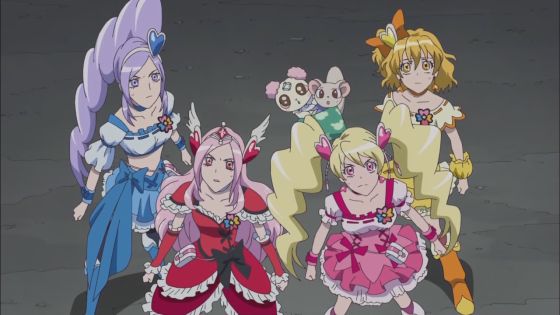
Lay off the meth, girls.
Fresh Pretty Cure is treading water and has been mostly lackluster since the end of the Cure Passion arc. Retconning Setsuna into a 14-year-old girl was not unexpected, but still inexcusable from a storytelling viewpoint. The addition of a fourth Cure diminished the importance of Cure Pine and Cure Berry and Cure Redundant. Wait, I mentioned her already. I maintain that Precure as a franchise works best with two Cures—no more, no less.
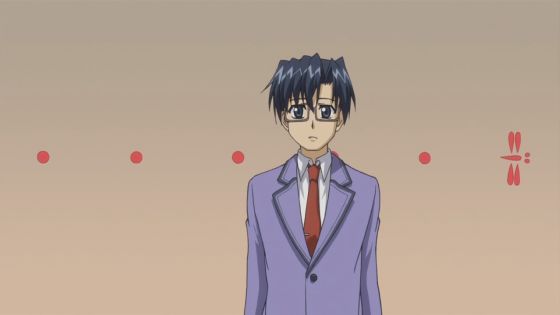
What about Nogizaka Haruka no Himitsu: Purezza?
Dropped at episode eight for being piss awful.
Was Autumn 2009 weaker than most seasons? I'd have to say so. Granted, I didn't watch Darker Than Black II or Railgun, both very highly regarded shows (although I suspect Railgun will be another ephemeral flash in the pan everyone disregards when the next shiny thing comes along), but aside from the refreshing Kimi ni Todoke and the briefly euphoric return of DARK MAMIKO in Queen's Blade II, I can't claim there will be much unique to Autumn 2009 alone that I will remember or recommend without reservation, alas.


